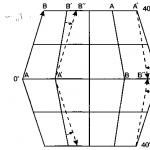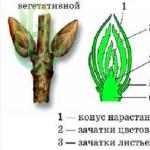We are all inhabitants of the most beautiful planet in the universe, it is called "blue" because of the abundance of water. It is the only one in the solar system, but all good things come to an end sooner or later. Have you ever wondered if the Earth stops, what will happen? We will try to find the answer to this question in this article.
Everyone knows from the time of the school bench that our earth has the shape of a ball and rotates around its axis. It is also in continuous motion around our source of heat and light, the Sun. But what is the reason for the rotation of the Earth?
All these questions are quite interesting, for sure, every inhabitant of our planet has asked this at least once in his life. The school course gives us little information of this kind. For example, everyone knows that as a result of the movement of the Earth, we have a change of day and night, the air temperature that is familiar to all of us is maintained. But this is not enough, because this process is not only limited to this.
Rotation around the Sun
So, we figured out that our planet is always in motion, but why and at what speed does the Earth rotate? It is important to know that all the planets in the solar system rotate at a certain speed, and all in the same direction. Coincidence? Of course not!
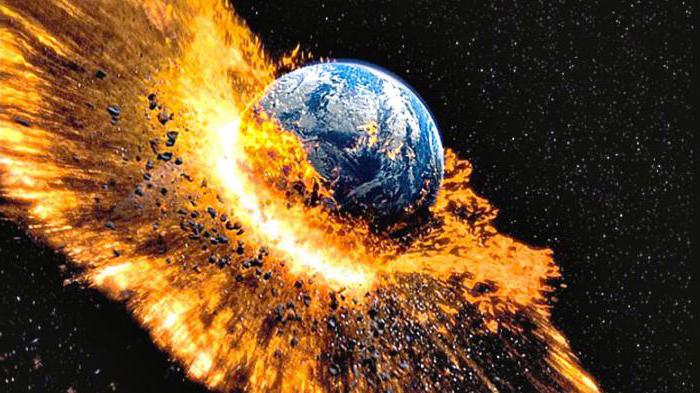
Long before the appearance of man, our planet was formed, it arose in a hydrogen cloud. After that, a strong push was obtained, as a result of which the cloud began to rotate. In order to answer the question "why", let's remember that each particle, when passing through a vacuum, has its own inertia, while all particles balance it.
Thus, the entire solar system rotates faster and faster. Our Sun was formed from this, and then all the other planets, and they inherited those very movements from the luminary.
Rotations around own axis
This question is of interest to scientists even now, there are many hypotheses, but we will give the most plausible one.
So, in the previous paragraph, we already said that the entire solar system was formed from the accumulation of "garbage", which was accumulated as a result of the fact that the young, at that time, Sun attracted it. Despite the fact that most of its mass went to our Sun, planets nevertheless formed around. Initially, they did not have a form familiar to us.
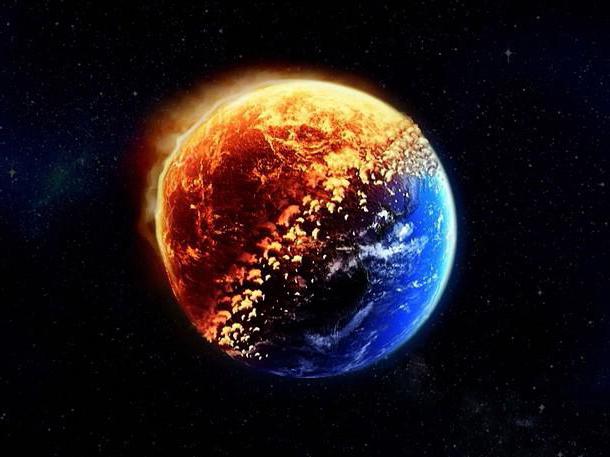
Sometimes, colliding with objects, they collapsed, but they had the ability to attract smaller particles, and so they gained their mass. Our planet was forced to rotate by several factors:
- Time.
- Wind.
- Asymmetry.
And the last is not a mistake, then the Earth resembled the shape of a snowball made by a small child. The irregular shape made the planet unstable, it was exposed to wind and solar radiation. Despite, she got out of an unbalanced position and began to spin, pushed by the same factors. In short, our planet does not move by itself, but it was pushed many billions of years ago. We have not specified how fast the Earth rotates. She is always on the move. And in almost twenty-four hours it makes a complete revolution around its axis. This movement is called diurnal. The speed of rotation is not the same everywhere. So at the equator, it is approximately 1670 kilometers per hour, and the North and South Poles may even remain in place.
But besides this, our planet is still moving along a different trajectory. A complete revolution of the Earth around the Sun takes three hundred and sixty-five days and five hours. This explains the fact that there is a leap year, that is, it has one more day.
Is it possible to stop?
If the Earth stops, what will happen? Let's start with the fact that the stop can be considered both around its axis and around the Sun. We will analyze all the options in more detail. In this chapter, we will discuss some general points, and whether this is even possible.
If we consider a sharp stop in the rotation of the Earth around its axis, then this is practically unrealistic. This can only be caused by a collision with a large object. We’ll clarify right away that there will no longer be any difference whether the planet is rotating or has left its orbit altogether, since a stop can be caused by such a large object that the Earth simply cannot withstand such an impact.
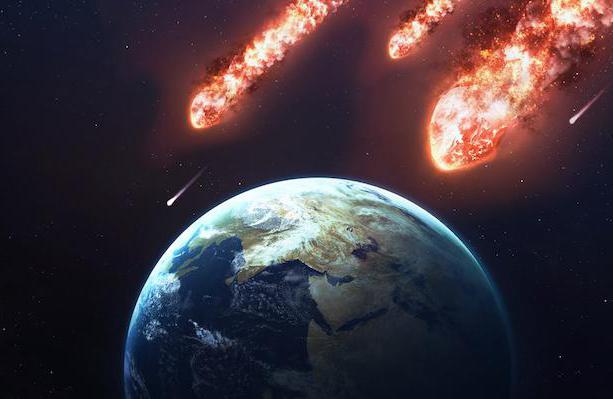
If the Earth stops, what will happen? If a sudden stop is practically impossible, then slow braking is quite possible. Although it is not felt, our planet is already gradually slowing down.
If we talk about flying around the Sun, then stopping the planet in this case is something from the realm of fantasy. But we will discard all probabilities and assume that this did happen. We suggest that you analyze each case separately.
abrupt stop
Although this option is hypothetically impossible, we still assume. If the Earth stops, what will happen? The speed of our planet is so great that a sudden stop for any reason will simply demolish everything on it.
First, in which direction does the earth rotate? From West to East at a speed of more than five hundred meters per second. From this we can assume that everything that moves on the planet will continue to move at a speed of more than 1.5 thousand kilometers per hour. The wind that will blow at the same speed will cause the strongest tsunami. On one hemisphere there will be six months of daylight, and then, those who are not burned by the highest temperature, will be finished off by six months of severe frost and night. What if they are still alive after that? The radiation will kill them. In addition, after the Earth stops, our core will make a few more revolutions, while volcanoes will erupt in places where they have not met before.
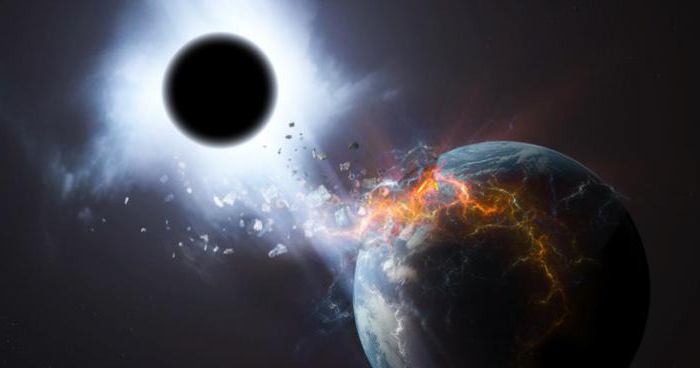
The atmosphere also will not stop its movement instantly, that is, there will be a wind blowing at a speed of 500 meters per second. In addition, partial loss of the atmosphere is possible.
This version of the catastrophe is the best outcome for humanity, because everything will happen so quickly that not a single person will simply have time to come to his senses, will not understand what is happening. Since the most likely outcome is an explosion of the planet. Another thing is the slow and gradual stop of the planet.
For many, the first thing that comes to mind is eternal day on one side, and eternal night on the other, but this is actually not much of a problem compared to the others.
soft stop
Our planet is slowing down its rotation, scientists say that a person will not find it completely stopped, since it will happen in billions of years, and long before that the Sun will increase in volume and simply burn the Earth. But, nevertheless, we will simulate a stop situation in the foreseeable future. Just to begin with, let's deal with the question: why does the slow stop occur?
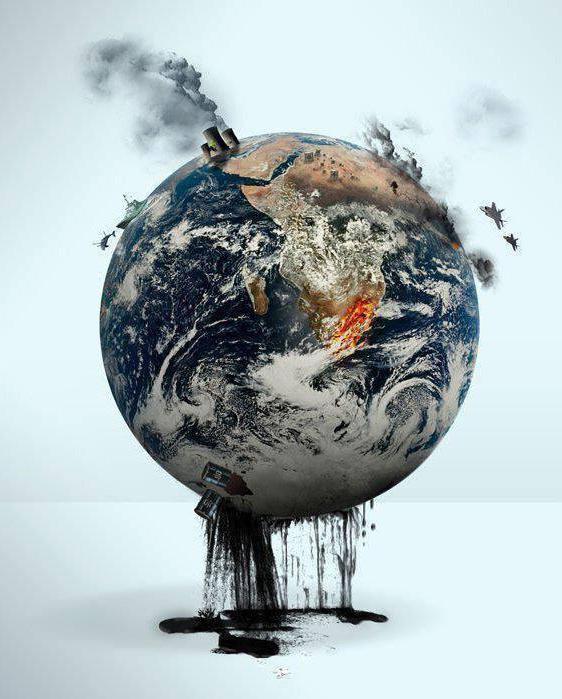
Previously, a day on our planet lasted about six hours, and the Moon has a strong influence on this factor. But how? It causes the water to vibrate with its force of attraction, and as a result of this process, a slow stop occurs.
It happened anyway
We are waiting for eternal night or eternal day in one of the hemispheres, but this is not the biggest problem compared to the redistribution of land and ocean, which will lead to the mass destruction of all life.
Where there is sun, all plants will gradually die out, and the soil will crack from drought, but the other side is the snowy tundra. The most suitable area for habitation will be in between, where there will be an eternal sunrise or sunset. At the same time, these territories will be quite small. Land will be located only at the equator. The North and South Poles will be two large oceans.
It is no exception that a person will need to adapt to exist in the ground, and spacesuits will be needed for walking on the surface.
No movement around the sun
This scenario is simple, everything that was on the front side will fly away into the free space of space, because our planet is moving at a very high speed, while others will receive an equally strong impact on the ground.
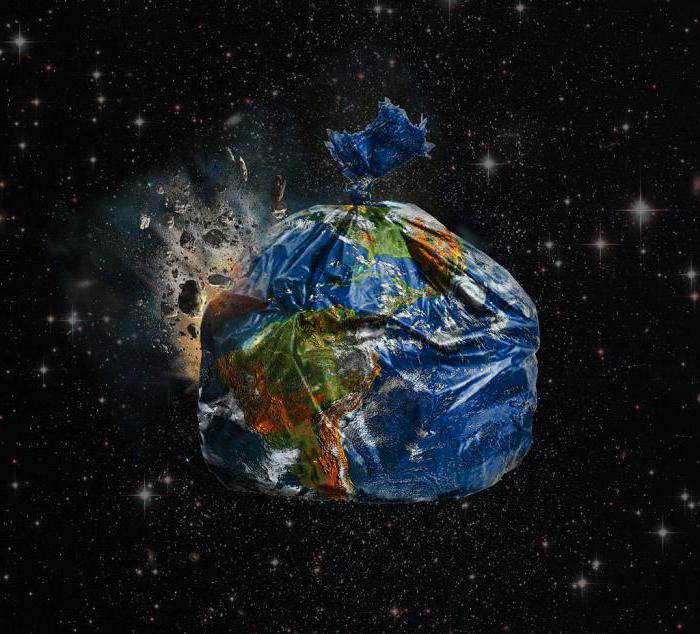
Even if the Earth gradually slows down its movement, then in the end it will fall into the Sun, and this whole process will take sixty-five days, but no one will live to the last, since the temperature will be about three thousand degrees Celsius. According to the calculations of scientists, in a month on our planet the temperature will reach 50 degrees.
This scenario is practically unrealistic, but the absorption of the Earth by the Sun is a fact that cannot be avoided, but humanity will not be able to catch this day.
Earth is out of orbit
This is the most fantastic option. No, we will not go on a journey through space, because there are laws of physics. If at least one planet from the solar system flies out of orbit, then it will bring chaos to the movement of all the others, as a result, it will fall into the "paws" of the Sun, which will absorb it, attracting it with its mass.


